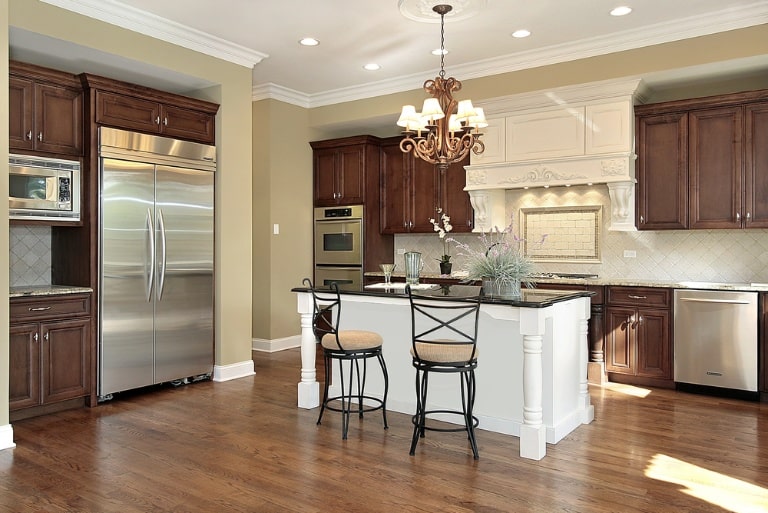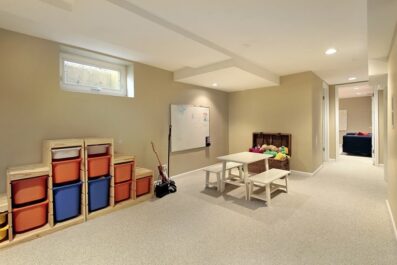How Long Does a Kitchen Remodel Take from Start to Finish?

Remodeling your kitchen is one of the most exciting and rewarding projects you can take on as a homeowner. But it’s also one of the most time-consuming. Between planning, permits, and construction, many homeowners in Washington State wonder — how long does a kitchen remodel really take from start to finish?
The answer depends on the size of your kitchen, the scope of work, and how organized your planning process is. But whether you’re doing a full renovation or a light refresh, understanding the general timeline helps you plan better and avoid surprises.
Below, we’ll walk through the typical phases of a kitchen remodel, what can cause delays, and how to keep your project running smoothly.
1. Planning and Design (2–6 Weeks)
Every successful kitchen remodel starts with thoughtful planning. This stage includes brainstorming your vision, setting a budget, and working with professionals to finalize the design.
What happens during this phase:
- Setting your remodeling goals — what’s changing and what’s staying
- Selecting materials (cabinets, countertops, flooring, fixtures, lighting)
- Meeting with a kitchen remodeling contractor in Washington to get estimates
- Creating design mockups and layout plans
If you already know what style you want — modern, farmhouse, transitional — the design phase can move quickly. But if you’re exploring options or waiting for material samples, expect it to take a bit longer.
Tip: Start with a clear list of priorities. Decide early where you want to invest most of your budget — for example, custom cabinetry or high-end countertops.
2. Permits and Approvals (2–4 Weeks)
Depending on your city and the scope of your remodel, you may need building permits — especially if plumbing, electrical, or structural changes are involved.
Common permits in Washington include:
- Electrical and plumbing work
- Wall removal or layout changes
- Window or door replacements
Permit timelines vary by location. For instance, larger cities like Seattle or Tacoma may take longer to process applications than smaller municipalities.
Working with a licensed remodeler who handles the permitting process can save you a lot of time and stress.
3. Ordering Materials (3–8 Weeks)
Once the design is approved, your contractor orders materials such as cabinets, countertops, flooring, and appliances.
This step often causes delays if not planned properly — especially for custom or imported materials, which can take several weeks to arrive.
Here’s a rough guide:
- Stock cabinets: 2–3 weeks
- Semi-custom cabinets: 4–6 weeks
- Custom cabinets: 6–10 weeks
- Countertops (after measurements): 1–2 weeks
- Appliances: 2–4 weeks (depending on availability)
To keep your project on track, confirm lead times with suppliers early on.
4. Demolition and Preparation (1–2 Weeks)
Once materials are ready and permits approved, the fun part begins — demo day!
This stage involves removing old cabinets, flooring, appliances, and sometimes walls. The crew will also prepare the space for new installations, including cleaning, leveling floors, and checking plumbing and wiring.
If no surprises are found behind the walls, this phase moves quickly. But issues like hidden water damage, mold, or old wiring can add a few extra days.
5. Rough-In Work: Plumbing, Electrical, and HVAC (1–2 Weeks)
After demolition, licensed tradespeople install or reroute plumbing, wiring, and ventilation systems.
This includes:
- Running new electrical lines for outlets, lighting, and appliances
- Installing or moving plumbing for sinks and dishwashers
- Setting up HVAC vents if your layout has changed
Building inspectors typically review this stage before drywall or cabinetry installation can begin.
6. Installation: Cabinets, Flooring, and Countertops (3–5 Weeks)
This is where your new kitchen really starts taking shape.
Typical installation order:
- Flooring
- Cabinets
- Countertops
- Backsplash and trim work
Each step builds upon the previous one, so timing and coordination matter. For example, countertop fabrication only begins after cabinets are installed to ensure accurate measurements.
If you’ve chosen stone or quartz countertops, expect an additional week or two for cutting and installation.
7. Painting, Fixtures, and Finishing Touches (1–2 Weeks)
The final phase adds polish and personality. Walls are painted, light fixtures are installed, and appliances are placed. Your contractor will also handle final trim, caulking, and touch-ups.
This stage might also include:
- Installing hardware (drawer pulls, handles)
- Mounting shelves or open storage
- Final plumbing hook-ups and lighting tests
Once everything’s installed, you’ll do a final walkthrough with your contractor to ensure all details meet your expectations.
8. Clean-Up and Final Inspection (1 Week)
Before calling the project complete, the space needs a thorough clean-up. Contractors remove debris, polish surfaces, and check that all systems (plumbing, electrical, appliances) work perfectly.
Depending on your city, a final inspection from local authorities may be required to close the permit.
Total Timeline: 8–16 Weeks
Here’s a simple breakdown of the average kitchen remodel timeline:
| Remodel Stage | Estimated Duration |
| Planning & Design | 2–6 weeks |
| Permits & Approvals | 2–4 weeks |
| Ordering Materials | 3–8 weeks |
| Demolition & Preparation | 1–2 weeks |
| Rough-In (Plumbing, Electrical, HVAC) | 1–2 weeks |
| Installation | 3–5 weeks |
| Finishing Touches & Inspection | 1–2 weeks |
| Total Estimated Time | 8–16 weeks |
A standard kitchen remodel in Washington State takes about 2–4 months from start to finish. Larger, custom projects may take longer, especially if you’re building from scratch or expanding the layout.
What Can Delay a Kitchen Remodel?
Even the best-planned remodels can face a few bumps. Common causes of delays include:
- Waiting for backordered materials
- Unexpected structural or water damage
- Permit approval delays
- Changes to the design mid-project
- Scheduling conflicts with subcontractors
The best way to minimize setbacks is to work with experienced kitchen remodeling professionals in Washington who manage each step efficiently and communicate clearly throughout the process.
Tips for a Smooth Kitchen Remodel
To make your remodel go as smoothly as possible, keep these practical tips in mind:
- Finalize your design before construction starts.
- Order materials early to avoid shipping delays.
- Set aside a temporary cooking space during construction.
- Expect minor delays — flexibility is key.
- Choose a contractor who provides a clear timeline and regular updates.
Final Thoughts
A kitchen remodel is a major project — but with the right planning, it can be both exciting and rewarding. On average, you can expect your remodel to take 8 to 16 weeks, depending on complexity and customization.
If you’re ready to start your renovation journey, consider reaching out to local kitchen remodeling experts in Washington who can guide you through each phase — from design and permitting to the final reveal.
With a skilled team by your side and a clear plan in place, your dream kitchen will be ready before you know it — beautifully crafted, highly functional, and built to last.




